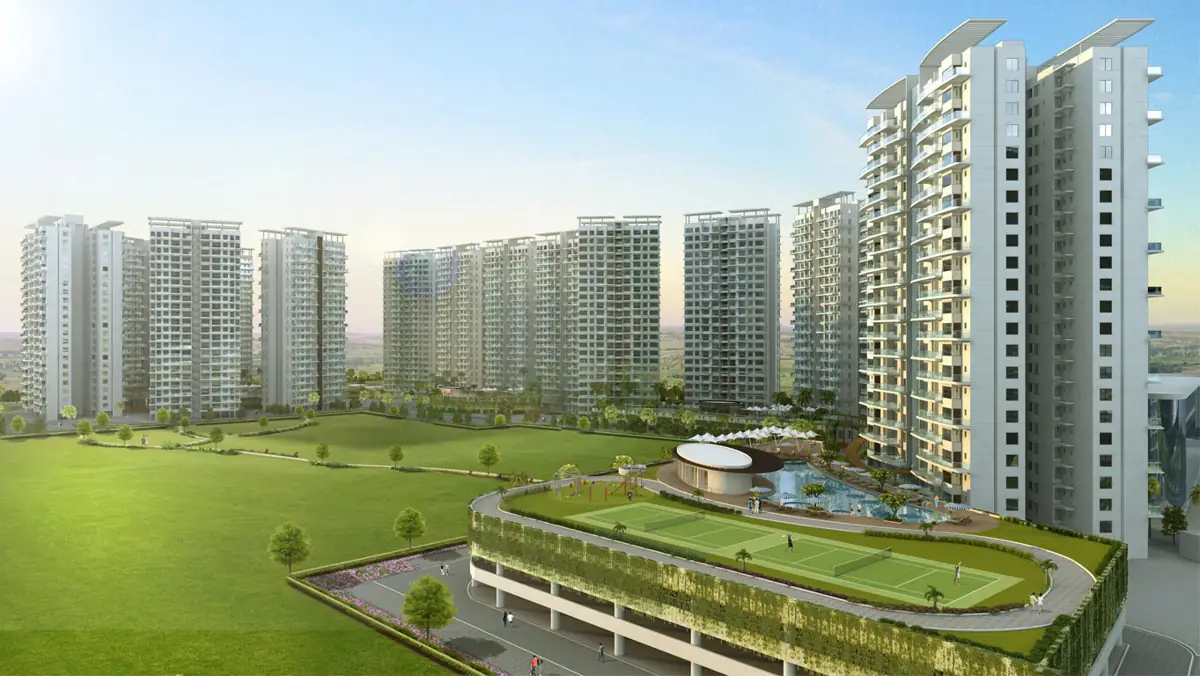Pune Real Estate Market Review for the Last 30 Days [Updated on: March 2025]

Over the last 30 days, Pune's real estate market has faced unique challenges and opportunities shaped by environmental clearance issues, strategic joint ventures, and a landscape teeming with both rumor and potential. This dynamic blend of circumstances has not only influenced current market behaviors but also laid groundwork for future trends. Here's a comprehensive look at the recent developments in Pune's real estate scene.
2. Market Gossip & Buzz
Pune's real estate market is buzzing with several major narratives. A prominent rumor suggests that over 100 projects, collectively worth about ₹30,000 crore, are stalled due to Supreme Court-mandated environmental clearance issues. In contrast, excitement permeates the market with the news of Hiranandani Group's significant venture into Pune's retail market alongside Chrysler Developers. This joint project, rumored to be valued at ₹7,000 crore, is expected to energize the local real estate scene.
3. New Projects Launched
Noteworthy among the new projects is the integrated township in Rewari, Pune, presented by the Hiranandani Group in collaboration with Chrysler Developers. Encompassing residential, commercial, and retail spaces, the first phase of this 105-acre township involves a ₹500 crore investment for its initial 30 acres. Additionally, there are competitive offerings in Pune with starting prices around ₹70 lakhs for a 2 BHK unit, accommodating modern amenities such as clubhouses and swimming pools.
4. Upcoming Projects
The market anticipates the development of new IT parks and commercial hubs in western Pune, particularly focusing around the strategic expansion of the Rajiv Gandhi IT Park. Residential projects near the forthcoming Purandar Airport and metro extensions are also expected to gain traction, promising a vibrant increase in real estate activities and investments.
5. Price Changes in Existing Projects & Localities
Pune's property market has demonstrated notable price dynamics, with select localities like Kharadi, Viman Nagar, and Hinjawadi witnessing over 50% growth over the past five years. Prices have risen from an average of ₹6,000 per square foot in 2019 to ₹8,000 per square foot in 2024, with certain pockets seeing robust appreciation driven by strong infrastructure and IT sector growth.
6. Infrastructure Developments
Pune's infrastructural landscape is transforming with significant projects underway. The Pune Metro expansion, nearing 70–80% completion, is set to improve connectivity across the city. The Outer Ring Road and the elevated Nagar Road corridor are promising to alleviate congestion, while the planned Purandar International Airport is poised to boost both warehousing and residential development in the region's eastern belt.
7. Government Policies & Regulations
Government regulations continue to impact market momentum, most notably due to a Supreme Court stay on state-level environmental clearances. This has caused delays, forcing developers to seek central permissions, impacting both project launches and government revenues from stamp duty and GST. On a positive note, state-level approvals for smaller projects under 5 acres are leading to faster launches in affordable housing.
8. Builder & Developer News
Developers in Pune are adjusting to financial strains and operational delays linked to heightened construction costs and pushed back projects. Hiranandani Group's collaboration with Chrysler Developers has emerged as a significant industry development, adopting a public-private partnership model expected to redefine local market dynamics.
9. Housing Trends (Luxury vs. Affordable)
Housing trends indicate a dichotomy between luxury and affordable segments. Smaller projects under 5 acres are gaining momentum, paving the way for a surge in affordable housing, while larger, upscale developments face hurdles due to clearance bottlenecks. High demand persists for well-located 2 BHK apartments with modern amenities, catering largely to the mid-segment buyers.
10. Market Overview & Comparisons
Pune is increasingly being compared to metropolitan rivals like Mumbai, celebrated for its affordability, infrastructure growth, and stable real estate market, particularly in the IT hubs of Hinjawadi and Kharadi. Though marked by supply constraints, Pune is positioned as more competitive with upcoming project developments and infrastructure investments.
11. Expert Opinions & Market Predictions
Experts emphasize the need for a balanced approach to environmental norms and approval efficiencies to mitigate prolonged delays. Predictions suggest that continued impediments due to clearance stays could lead to higher project costs and emerging price hikes. Conversely, strategic ventures like the Hiranandani-Chrysler project are expected to boost investor confidence, particularly drawing non-resident Indian (NRI) interests.
12. Conclusion
Pune's real estate realm is navigating through complexity, with halted projects on one hand and transformative infrastructural progress on the other. The city's stability amid these dynamics makes it a promising yet challenging market for buyers, investors, and developers alike. As the regulatory and infrastructural landscapes evolve, Pune holds potential for exciting growth and opportunities, particularly when viewed through the prism of its strategic developments and market adaptability.
Comments
No comments yet. Be the first to comment!